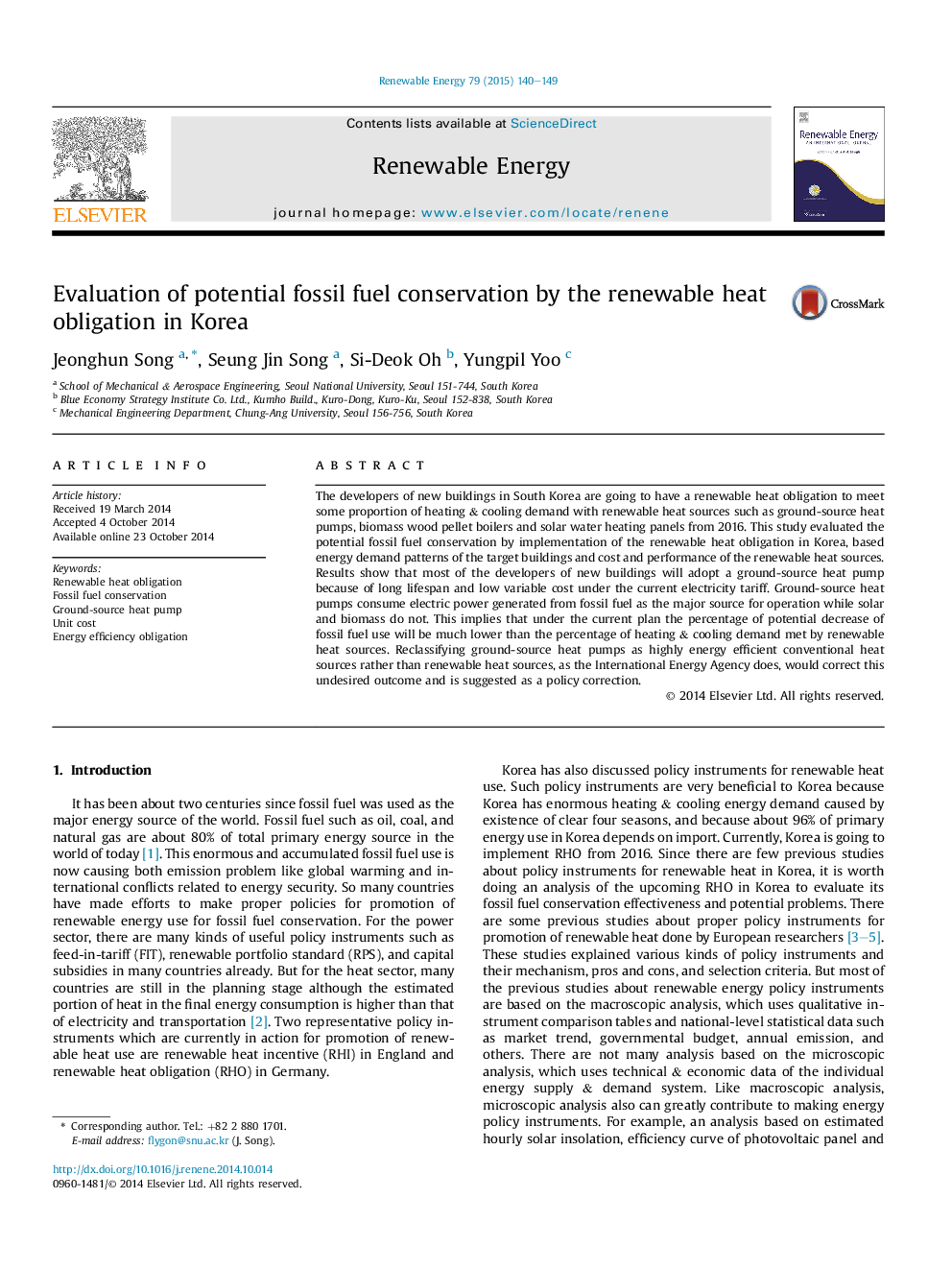| کد مقاله | کد نشریه | سال انتشار | مقاله انگلیسی | نسخه تمام متن |
|---|---|---|---|---|
| 299935 | 512459 | 2015 | 10 صفحه PDF | دانلود رایگان |
• Some part of the heat demand of buildings should be met by renewables.
• Most of the buildings will adopt ground-source heat pump for minimum cost.
• Ground-source heat pump consumes electricity as the major source for driving.
• Fossil fuel conservation by the renewable heat obligation is lower than expected.
• Energy efficiency obligation is more appropriate for ground-source heat pump.
The developers of new buildings in South Korea are going to have a renewable heat obligation to meet some proportion of heating & cooling demand with renewable heat sources such as ground-source heat pumps, biomass wood pellet boilers and solar water heating panels from 2016. This study evaluated the potential fossil fuel conservation by implementation of the renewable heat obligation in Korea, based energy demand patterns of the target buildings and cost and performance of the renewable heat sources. Results show that most of the developers of new buildings will adopt a ground-source heat pump because of long lifespan and low variable cost under the current electricity tariff. Ground-source heat pumps consume electric power generated from fossil fuel as the major source for operation while solar and biomass do not. This implies that under the current plan the percentage of potential decrease of fossil fuel use will be much lower than the percentage of heating & cooling demand met by renewable heat sources. Reclassifying ground-source heat pumps as highly energy efficient conventional heat sources rather than renewable heat sources, as the International Energy Agency does, would correct this undesired outcome and is suggested as a policy correction.
Journal: Renewable Energy - Volume 79, July 2015, Pages 140–149
